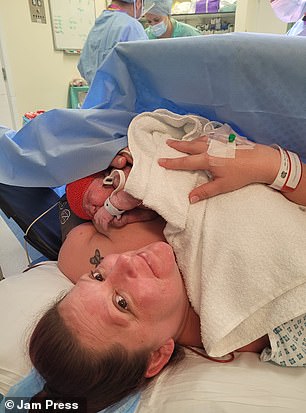A heroine mother who battled cancer three times has told how she found out she was pregnant just before undergoing surgery to remove a tumour.
Danielle Emery, 39, from Reading, was suffering from a sore throat but assumed it was just a cold – until she was given a shock diagnosis of laryngeal cancer.
Laryngeal cancer is a type of cancer that affects the larynx, a part of the throat that is located at the entrance to the trachea, also known as the windpipe.
The carer, who was terrified about the future, was given hope when emergency surgery was scheduled to address the condition. However, Danielle was stunned when doctors also informed her she was 11 weeks pregnant.
With only minutes to make the painful decision to save her life or that of her baby, she opted for surgery, risking a 99 percent chance of miscarrying in the process.
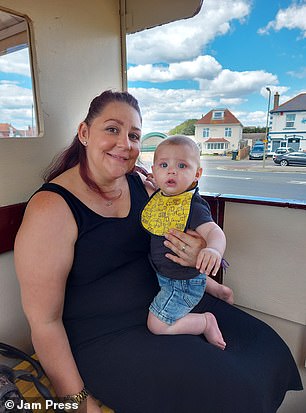
Danielle Emery, a 39-year-old hero mother who battled cancer three times, has told how she found out she was pregnant moments before undergoing surgery to remove a tumour (pictured left: Danielle gives birth to her first child, Callum; right: Danielle poses with her son months later)
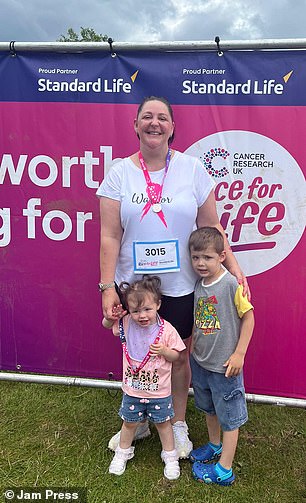
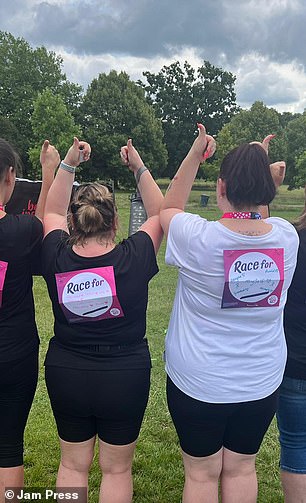
After beating cancer three times, Danielle ran the Race for Life for Cancer Research UK with some friends.
But for this first-time mother, the decision would prove to be the best one yet, as she welcomed her “miracle baby” Callum months later.
“There was a 99 percent chance I would miscarry because I was so early in my pregnancy,” Danielle explained.
‘They explained to me how important the operation was to save my life. I only had a few minutes to make the hardest decision I have ever had to make in my life, but without me, there would have been no baby anyway.
“I had the operation and thankfully all the cancer was removed. And my baby was fine too.”
Danielle received the surprise of her life when she was diagnosed with cancer in April 2019.
She recalled that at the time she felt depressed and had to strain her voice, which led her to visit the doctor.
However, doctors initially suggested it was laryngitis (a condition that causes the vocal cords to become irritated or swollen) before confirming that it was, in fact, laryngeal cancer.
During the ordeal, Danielle recalled that her period had been late, but she attributed it to increasing stress.
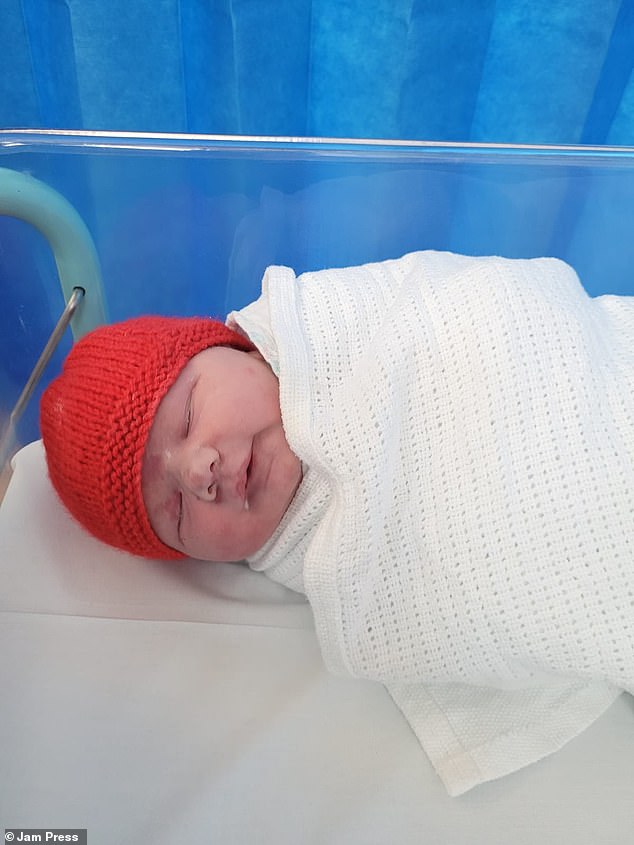
Danielle was delighted to welcome her ‘miracle baby’, Callum, pictured here as a newborn in hospital.
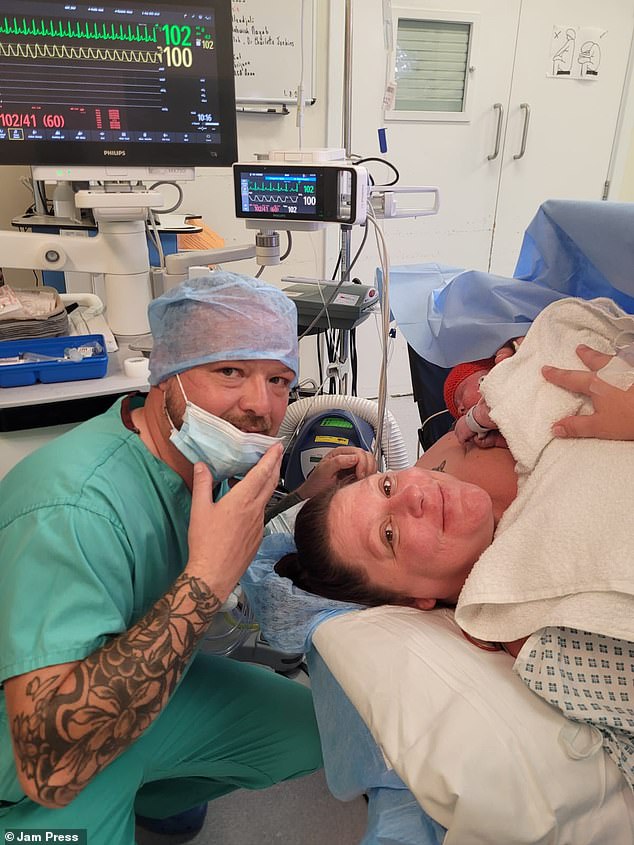
Danielle and her partner Tony (pictured), 39, both from Reading, are all smiles with their newborn baby boy Callum.
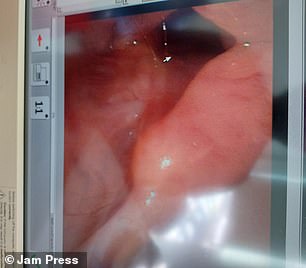
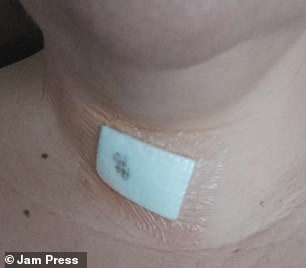
Danielle suffered from a sore throat but assumed it was just a cold, until she was given a shocking diagnosis of laryngeal cancer.
She and her partner, Tony, 39, had not been actively trying for a baby and although they were very happy, there was a lot of uncertainty. A few months later, they would find out why.
Danielle was stunned when she learned the cancer had returned just six months into her pregnancy.
But this time she wasn’t afraid for herself, but for the future of her unborn baby.
“I was no longer worried about myself, but I was terrified for my baby’s safety,” she said.
‘I cried when they told me it had returned, because it wasn’t the news I wanted to hear. I was afraid it had spread further down my throat, but luckily it had reappeared on my left vocal cord.
“I was very afraid that the anesthesia would harm my baby and that I would never be able to be a mother. However, being pregnant made me strong and gave me the determination to fight the disease.”
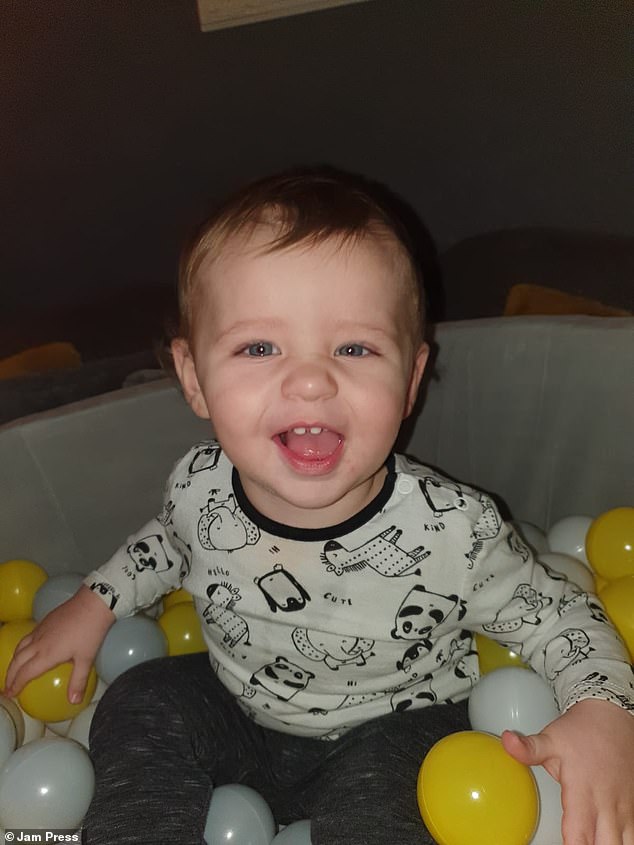
Danielle had to make the painful decision to save her life or her baby’s; she chose her unborn child; risking a 99 per cent chance of miscarriage in the process (pictured: Callum as a toddler)
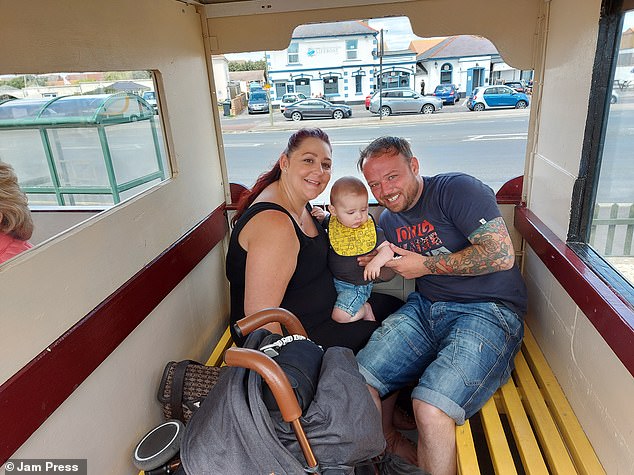
The then family of three poses together during a day trip outdoors.
Danielle would undergo more invasive surgery and laser removal, the aim of which was to permanently eliminate the cancer.
“Luckily, my baby’s heart was beating strongly and once again I was given the all-clear,” she said in a cheerful voice.
The couple welcomed little Callum in 2020, who is now four years old.
They focused on being new parents and vowed to put the trauma behind them because life was finally getting better, or so they thought.
In June 2020, Danielle’s cancer returned for a third time: “I was devastated as I was enjoying being a mother to my miracle baby,” she said.
“I kept thinking, ‘Why me? Why is life so cruel to me? ‘ I thought I was finally getting back on track, but cancer was ruining it.
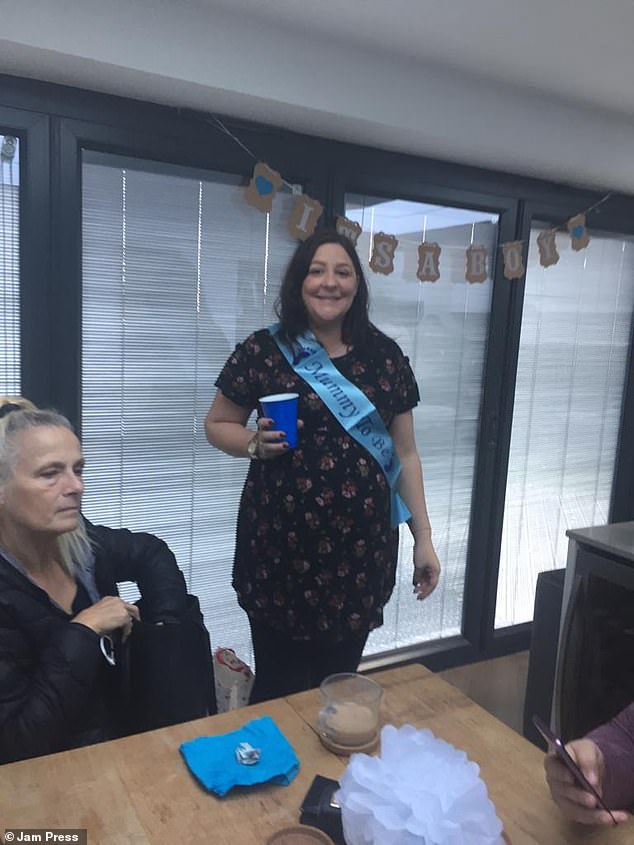
Danielle pictured at her baby shower after being told she was cancer-free. The cancer would return two more times
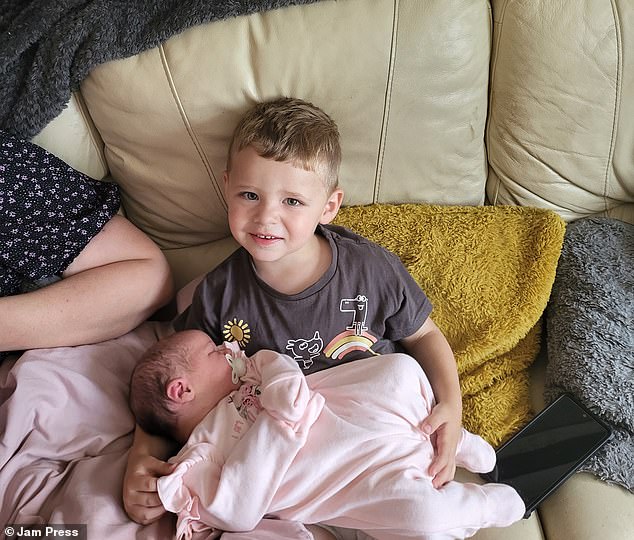
Callum, now a proud big brother, poses with his little sister, Sienna-Rose

Danielle has shared her story “so that other people who have worrying symptoms can seek help, get tested and not put it off until it’s too late.” (Pictured: The family of four enjoy a pumpkin patch ride recently)
‘My biggest fear was that my little one would never hear his mother’s voice and I couldn’t look to the future because I didn’t know what it would bring.’
As doctors feared the cancer would continue to recur, the difficult decision was made to remove her vocal cords.
Danielle faced the risk of never being able to speak again, but fortunately, her voice returned within hours.
She has now been officially cancer-free for three years and has since run the Race for Life for Cancer Research UK, as well as welcoming her second child, one-year-old Sienna-Rose.
The mother-of-two added: ‘I’m sharing my story so that other people who have worrying symptoms seek advice, get checked and don’t leave it until it’s too late.
‘Cancer kills, you lose loved ones like I did and I am very lucky to be a survivor.
‘I am grateful for life and extremely happy to have two beautiful and healthy children.’

